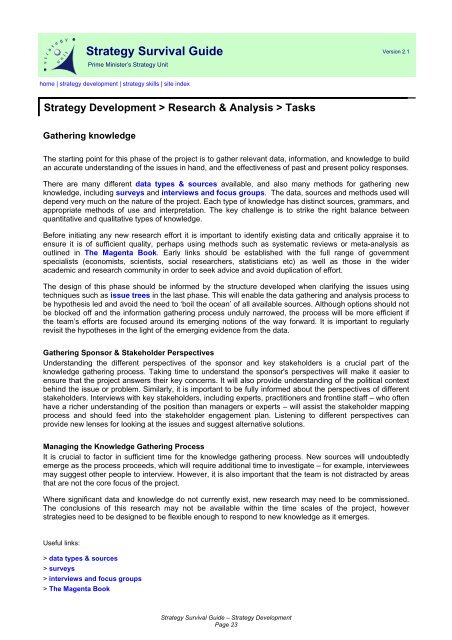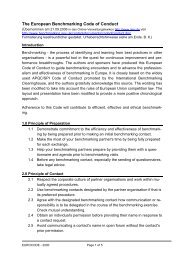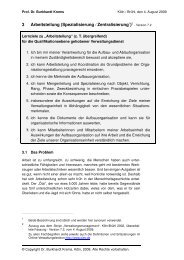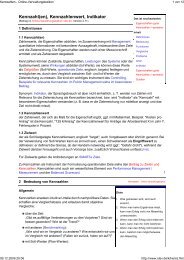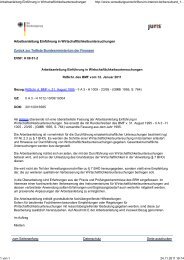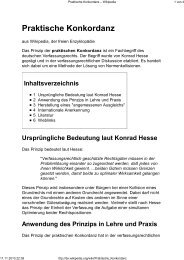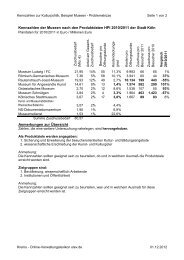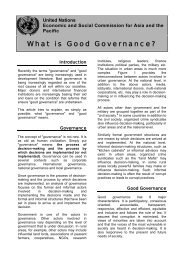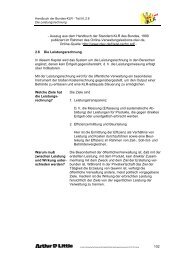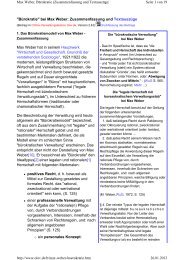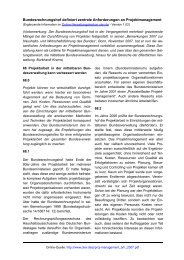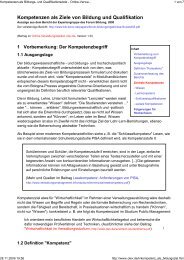Strategy Survival Guide
Strategy Survival Guide
Strategy Survival Guide
Create successful ePaper yourself
Turn your PDF publications into a flip-book with our unique Google optimized e-Paper software.
<strong>Strategy</strong> <strong>Survival</strong> <strong>Guide</strong> Version 2.1<br />
Prime Minister’s <strong>Strategy</strong> Unit<br />
home | strategy development | strategy skills | site index<br />
<strong>Strategy</strong> Development > Research & Analysis > Tasks<br />
Gathering knowledge<br />
The starting point for this phase of the project is to gather relevant data, information, and knowledge to build<br />
an accurate understanding of the issues in hand, and the effectiveness of past and present policy responses.<br />
There are many different data types & sources available, and also many methods for gathering new<br />
knowledge, including surveys and interviews and focus groups. The data, sources and methods used will<br />
depend very much on the nature of the project. Each type of knowledge has distinct sources, grammars, and<br />
appropriate methods of use and interpretation. The key challenge is to strike the right balance between<br />
quantitative and qualitative types of knowledge.<br />
Before initiating any new research effort it is important to identify existing data and critically appraise it to<br />
ensure it is of sufficient quality, perhaps using methods such as systematic reviews or meta-analysis as<br />
outlined in The Magenta Book. Early links should be established with the full range of government<br />
specialists (economists, scientists, social researchers, statisticians etc) as well as those in the wider<br />
academic and research community in order to seek advice and avoid duplication of effort.<br />
The design of this phase should be informed by the structure developed when clarifying the issues using<br />
techniques such as issue trees in the last phase. This will enable the data gathering and analysis process to<br />
be hypothesis led and avoid the need to ‘boil the ocean’ of all available sources. Although options should not<br />
be blocked off and the information gathering process unduly narrowed, the process will be more efficient if<br />
the team’s efforts are focused around its emerging notions of the way forward. It is important to regularly<br />
revisit the hypotheses in the light of the emerging evidence from the data.<br />
Gathering Sponsor & Stakeholder Perspectives<br />
Understanding the different perspectives of the sponsor and key stakeholders is a crucial part of the<br />
knowledge gathering process. Taking time to understand the sponsor's perspectives will make it easier to<br />
ensure that the project answers their key concerns. It will also provide understanding of the political context<br />
behind the issue or problem. Similarly, it is important to be fully informed about the perspectives of different<br />
stakeholders. Interviews with key stakeholders, including experts, practitioners and frontline staff – who often<br />
have a richer understanding of the position than managers or experts – will assist the stakeholder mapping<br />
process and should feed into the stakeholder engagement plan. Listening to different perspectives can<br />
provide new lenses for looking at the issues and suggest alternative solutions.<br />
Managing the Knowledge Gathering Process<br />
It is crucial to factor in sufficient time for the knowledge gathering process. New sources will undoubtedly<br />
emerge as the process proceeds, which will require additional time to investigate – for example, interviewees<br />
may suggest other people to interview. However, it is also important that the team is not distracted by areas<br />
that are not the core focus of the project.<br />
Where significant data and knowledge do not currently exist, new research may need to be commissioned.<br />
The conclusions of this research may not be available within the time scales of the project, however<br />
strategies need to be designed to be flexible enough to respond to new knowledge as it emerges.<br />
Useful links:<br />
> data types & sources<br />
> surveys<br />
> interviews and focus groups<br />
> The Magenta Book<br />
<strong>Strategy</strong> <strong>Survival</strong> <strong>Guide</strong> – <strong>Strategy</strong> Development<br />
Page 23


